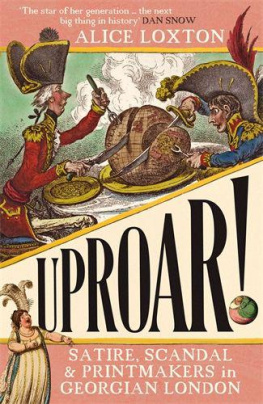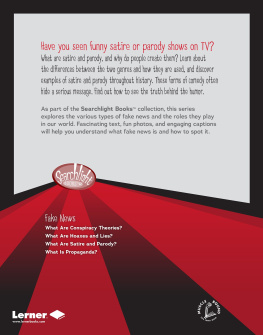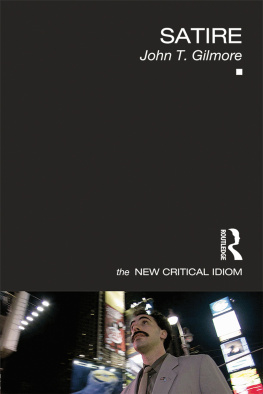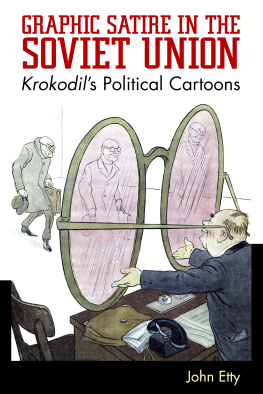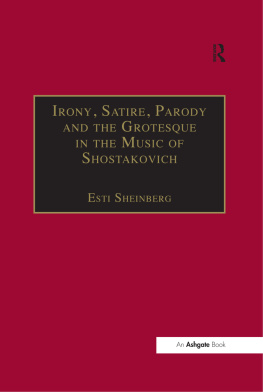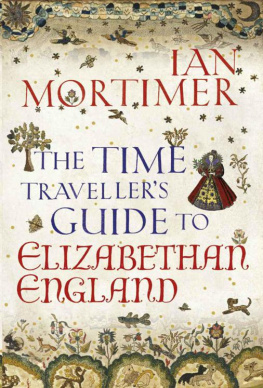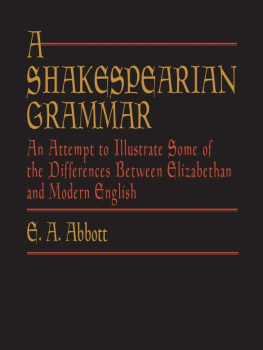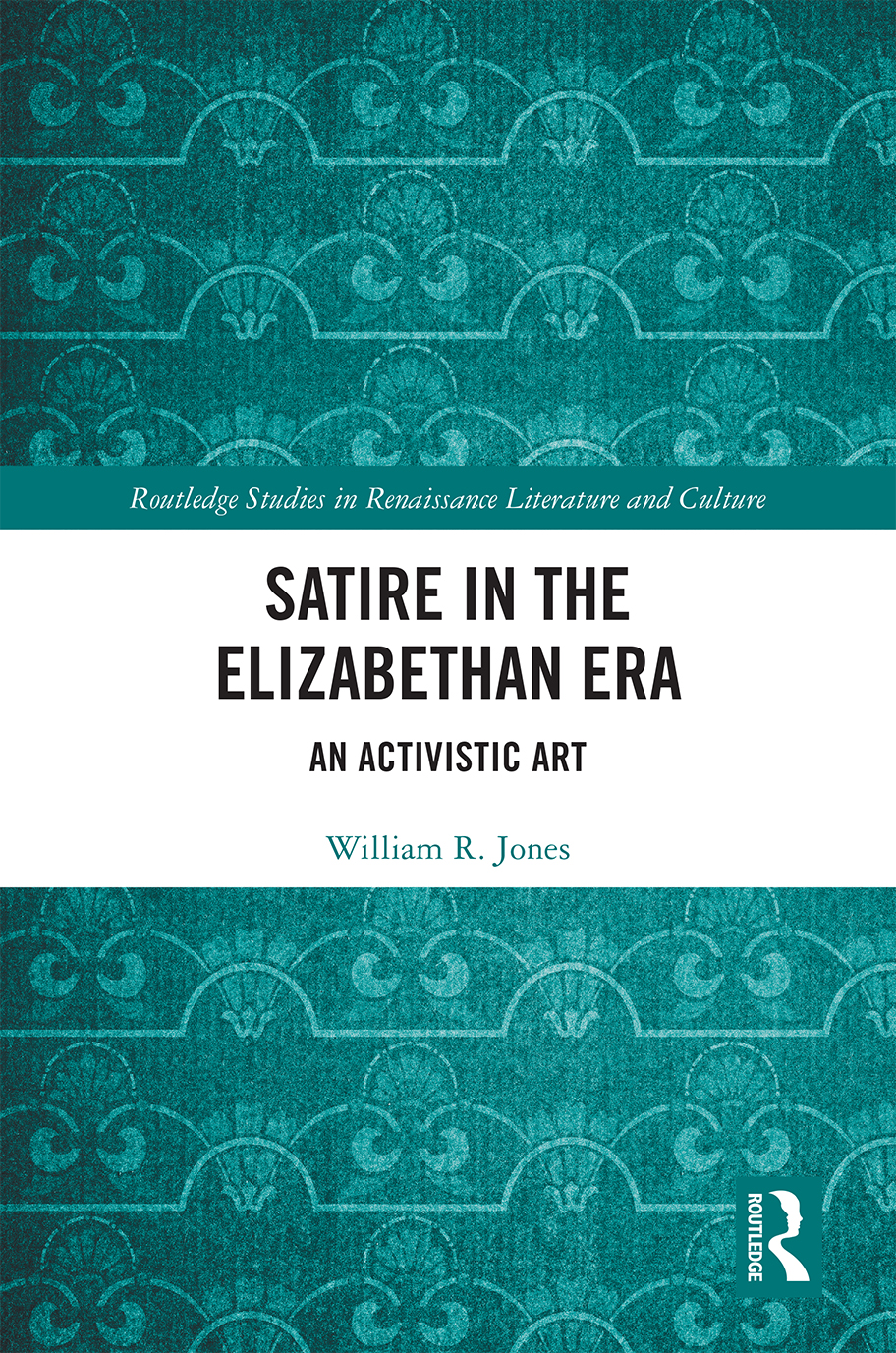Contents
Satire in the Elizabethan Era
This book argues that the satire of the late Elizabethan period goes far beyond generic rhetorical persuasion, but is instead intentionally engaged in a literary mission of transideological perceptual translation. This reshaping of cultural orthodoxies is interpreted in this study as both authentic and activistic in the sense that satire represents a purpose-driven attempt to build a consensual community devoted to genuine socio-cultural change. The book includes explorations of specific ideologically stabilizing satires produced before the Bishops Ban of 1599, as well as the attempt to return nihilistic English satire to a stabilizing theatrical form during the tumultuous end of the reign of Elizabeth I. Dr. Jones infuses carefully chosen, modern-day examples of satire alongside those of the Elizabethan Era, making it a thoughtful, vigorous read.
William R. Jones is an Associate Professor of English at Murray State University, USA. His scholarly work has been published in Helios, The Huntington Library Quarterly, and Literature Compass. His current project focuses on satire in American musical theater.
Routledge Studies in Renaissance Literature and Culture
For a full list of titles in this series, please visit www.routledge.com.
32 The Renaissance and the Postmodern
A Study in Comparative Critical Values
Thomas L. Martin and Duke Pesta
33 Enchantment and Dis-enchantment in Shakespeare and Early Modern Drama
Wonder, the Sacred, and the Supernatural
Edited by Nandini Das and Nick Davis
34 Twins in Early Modern English Drama and Shakespeare
Daisy Murray
35 Gender, Speech, and Audience Reception in Early Modern England
Katie Kalpin Smith
36 Womens Prophetic Writings in Seventeenth-Century Britain
Carme Font
37 Mendacity and the Figure of the Liar in Seventeenth-Century French Comedy
Emilia Wilton-Godberfforde
38 Forms of Hypocrisy in Early Modern England
Edited by Lucia Nigri
39 John Bunyans Imaginary Writings in Context
Nancy Rosenfeld
40 Miltons Italy: Anglo-Italian Literature, Travel, and Connections in Seventeenth-Century England
Catherine Martin
41 Satire in the Elizabethan Era
An Activistic Art
William R. Jones
Satire in the Elizabethan Era
An Activistic Art
William R. Jones

First published 2018
by Routledge
711 Third Avenue, New York, NY 10017
and by Routledge
2 Park Square, Milton Park, Abingdon, Oxon OX14 4RN
Routledge is an imprint of the Taylor & Francis Group, an informa business
2018 Taylor & Francis
The right of William R. Jones to be identified as author of this work has been asserted by him in accordance with sections 77 and 78 of the Copyright, Designs and Patents Act 1988.
All rights reserved. No part of this book may be reprinted or reproduced or utilised in any form or by any electronic, mechanical, or other means, now known or hereafter invented, including photocopying and recording, or in any information storage or retrieval system, without permission in writing from the publishers.
Trademark notice: Product or corporate names may be trademarks or registered trademarks, and are used only for identification and explanation without intent to infringe.
Library of Congress Cataloging-in-Publication Data
CIP data has been applied for.
ISBN: 978-1-138-71022-1 (hbk)
ISBN: 978-1-351-18108-2 (ebk)
Typeset in Sabon
by codeMantra
This book is dedicated to Lis, Brynn, Patrick, Mom, Dad, Genie, and Les. I am eternally grateful for your unwavering support, infinite patience, and unconditional love. For thy sweet love remembered such wealth brings / That then I scorn to change my state with kings.
Contents
I am extremely grateful to the enormous number of people who have given their wisdom, guidance, support, kindness, and above all, their time to help bring this project to fruition. I am forever in your debt. Thanks also to my family not noted in the Dedication (Lisa, Max, and John, especially).
Thanks to my colleagues, the support staff, and the administration of Murray State University (Go Racers!). Because of Murray States dedication to faculty research, this project was well supported through teaching assignments, travel funds, release time awards, sabbatical, and an array of research fellowships. Special thanks to the MSU Department of English and Philosophy, the Dean of the College of Humanities and Fine Arts, the Provosts Office, the Presidents Office, and the Committee on Institutional Studies and Research. I also extend my thanks to the staff at MSUs Waterfield Library.
I have received invaluable assistance from the staff at The Huntington Library (Pasadena, CA), where a great deal of the archival research for this project took place (along with many walks through the gardens). Thanks also to the staff at The British Library for their help and guidance. I also appreciate the professional support I have received from the publishing and editorial staff at Routledge.
I wish to thank the administrators and members of the Shakespeare Association of America. I was fortunate to lead a seminar on Shakespeare and Modes of Satire in 2012, and both before and since that time, I have participated in a range of seminars that have proved immeasurably helpful to the development of this book.
I have been fortunate over the years to learn from a group of exceptional scholars and educators from a number of prestigious institutions, and so I send my deep appreciation to all of them. From the University of California, Santa Cruz (Go Banana Slugs!), thanks to Drs. Margo Hendricks, Mary-Kay Gamel, Karen Bassi, Deanna Shemek, Carla Freccero, Jody Greene, and Harry Berger. UCSC also showed great trust in giving an inexperienced graduate student the opportunity and freedom to design and conduct courses on satire as he saw fit, which in hindsight proved very important to this project. Thanks also to Drs. Roland Greene (Stanford University; Go Trees!), Joan Pong Linton (Indiana University; Go Hoosiers!), and Heather James (University of Southern California; Go Trojans!) for their support and advice over the years.
But most of all, my humblest thanks to Dr. Michael Warren, who for the past twenty years has given me more of his time, knowledge, counsel, guidance, and compassion than any educator should be expected to give. I have benefitted as much from our regular teatime chats as from any course I have taken or any book I have read. Thank you.
Tea soon, Michael?
I like it that jokes can hurt. I like it that [North Korean leader] Kim Jong-un was wounded by a movie. [i.e. The Interview, Sony Pictures, 2014] If youre a satirist, thats winning.
Bill Maher, Real Time with Bill Maher (HBO)
In 1964, United States Supreme Court Justice Potter Stewart famously remarked that although he was unable to define precisely the distinguishing characteristics of obscenity, I know it when I see it, and this same intuitive response is often applied to the understanding of satire. At some point during a novel or a film, a play or a television program, a poem or a song, whether comic, tragic, romantic, etc., readers and auditors will be suddenly struck by an awareness that the work in question was merely a ruse, a host fiction employed by a parasite lying within, waiting to leap forth and skewer its unsuspecting victims. What, then, is it, precisely, that sets off the satire alarm bell? A consistent critical perspective and manifest targets are two potential factors that alert us to satires presence, but when pressed to codify other defining features of Satire, or to identify a specific tipping point that morphs a genre containing satiric elements into


